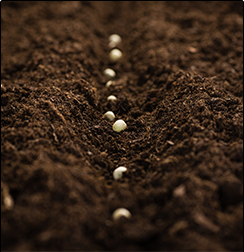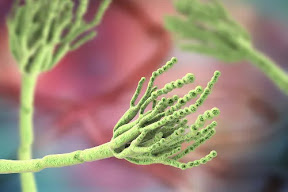Try Sustainable Crop Protection Practices Instead of Pesticides, But Why?
Pollution is a demanding problem in our world. Even, everybody suffers from the hazardous effects of pollution, either atmospheric and land pollution.
All keys in our hand because we have solutions to avoid such situations and pollution related parameters by taking right steps, rather than wrong ones.
Therefore, the need of transitioning to sustainable crop protection practices like incorporation of BacillusMucilaginosus, instead of relying solely on chemical pesticides is essential for several compelling reasons.
It is the best deal if you should have all details and insights about them, so why are you waiting to take a deep dive on such parameters.
Environmental Benefits
Reduced Chemical Pollution
Pesticides can contaminate water bodies, soil, and the air, leading to pollution and adverse effects on non-target species, including beneficial insects, birds, and aquatic life. Sustainable practices minimize chemical use, such as Brevibacillus Laterosporous, decreasing the environmental impacts.
Preservation of Biodiversity
Beneficial Insects
Many insects, such as bees, ladybugs, and parasitoid wasps, play crucial roles in pollination and pest control. Sustainable practices support these beneficial insects by reducing pesticides exposure.
Human Health and Safety
Reduced Exposure
Pesticide exposure poses health risks to farmworkers, nearby communities, and consumers who ingest residues on food. Sustainable practices aim to minimize such risks by using alternative pest management strategies.
Resilience to Pest Resistance
Pest Adaptation
Over Reliance on chemical pesticides can lead to the development of pesticide-resistant pests, making future control more challenging. Sustainble practices incorporate a variety of control methods, reducing the risk of resistance.
Cost Savings
Reduced Input Costs
Sustainable practices often require fewer inputs, such as pesticides and synthetic fertilizers, resulting in cost savings for farmers. This can enhance profitability and reduce the financial burden of farming.
Soil Health and Sustainability
Improved Soil Health
Sustainable practices like crop rotation, cover cropping, and reduced tillage improve soil health, fertility, and resilience. Healthy soils are better at supporting plant growth and suppressing pests.
Long-Term Viability
Sustainable Farming for Future Generations
Practices that focus on ecological balance, biodiversity, and soil conservation contribute to the long-term viability of agriculture, ensuring that future generations can continue to farm successfully.
Market Demand and Consumer Preferences
Consumer Awareness
Consumers are increasingly seeking sustainably produced and pesticide-free food. Adopting sustainable practices can help farmers meet market demands and access premium prices for their products.
Regulatory Pressure
Stricter Regulations
Regulatory authorities are imposing stricter limits on pesticide use and residue levels in food. Compliance with these regulations is easier when sustainable practices are adopted.
Climate Resilience
Climate-Smart Agriculture
Sustainable practices, such
as diversified cropping systems and soil conservation, can enhance the
resilience of agriculture to climate change by reducing vulnerability to
extreme weather events and optimizing resource uses.




Comments
Post a Comment